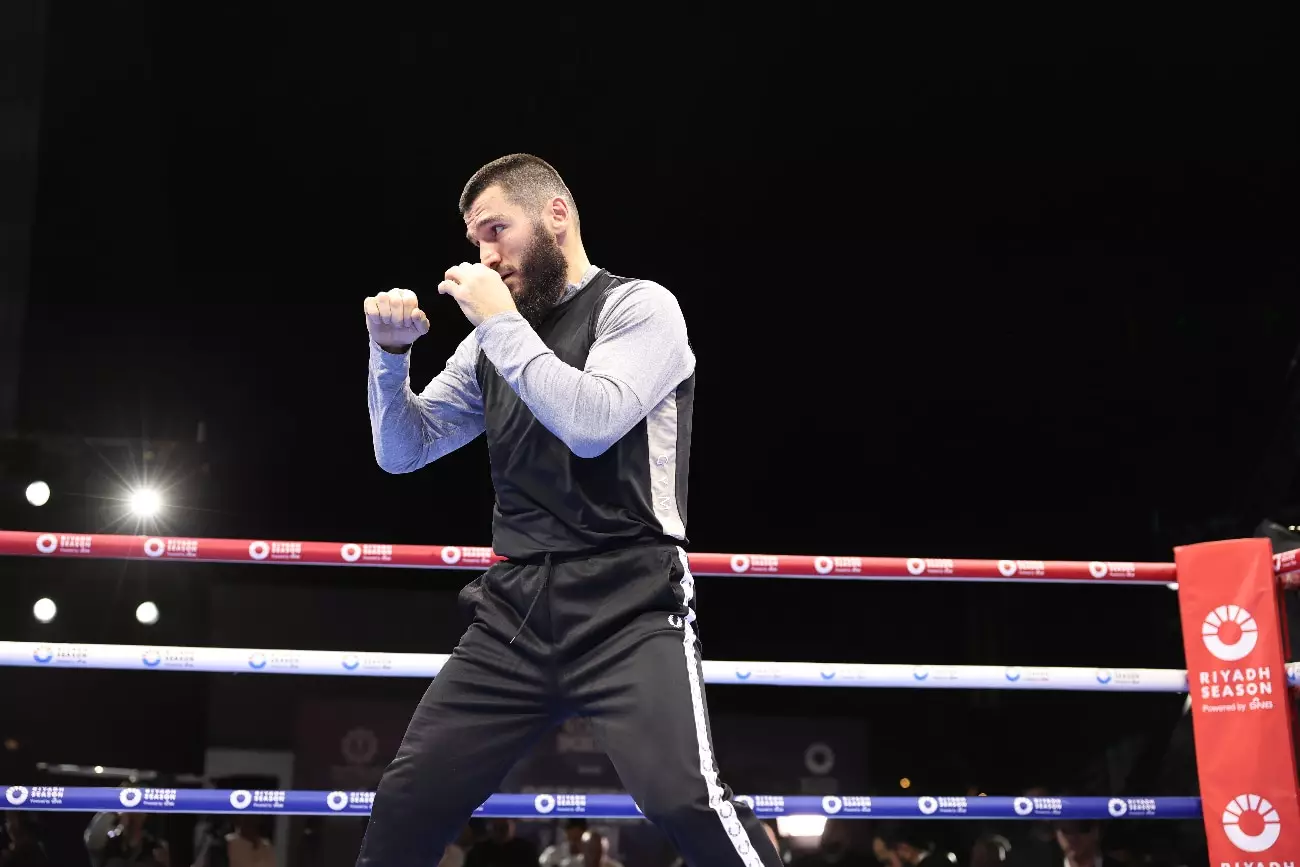The electrifying bout between three-belt light heavyweight champion Artur Beterbiev and WBA light welterweight champion Dmitry Bivol on October 12 at the Kingdom Arena in Riyadh has garnered significant attention. As fervent fans and keen media observers prepare for this clash, a growing skepticism has arisen regarding the health of Beterbiev’s surgically repaired right knee. Despite the champion’s confident declarations of being fit, many are questioning whether he can maintain his elite status against Bivol, especially given Bivol’s impressive records and skills.
During a recent media workout, Beterbiev’s performance—and notably his mobility—did not inspire confidence. Observers noted a stark contrast between his movements and Bivol’s, raising questions about the former’s physical condition. The apprehension surrounding Beterbiev’s knee injury, which resulted from a blown-out meniscus, suggests that his ability to maneuver in the ring may be severely compromised.
Renowned boxing analyst Shawn Porter emphasized the implications of Beterbiev’s compromised leg strength, arguing that it would be challenging for him to cut off the ring and corner Bivol, known for his quick feet and lateral movement. This tactical disadvantage could leave Beterbiev vulnerable, especially since he faces a fighter who possesses the agility to exploit any deficiency.
The mental aspect of this matchup is as crucial as the physical one. Porter pointed out that self-preservation instincts could unconsciously influence Beterbiev’s movements, compelling him to protect his knee rather than pursue offensive strategies effectively. This could present a perplexing dilemma for Beterbiev: while his instinct may be to avoid excessive strain on the injured knee, the nature of boxing requires relentless aggression and adaptability to counter a slippery opponent like Bivol.
Beterbiev’s past experiences against more stationary fighters did not prepare him for the nuanced challenges posed by a skilled mover. Bivol is not only an adept counterpuncher but also a fighter distinguished by his defensive capabilities and exceptional jab—tools that could frustrate Beterbiev as he tries to mount an offense.
One of the most glaring concerns is the limited timeframe Beterbiev has had to recover from his surgery. With only four months since the procedure, many experts assert that such an injury typically demands a longer rehabilitation period to ensure complete healing and freedom of movement. Therefore, even if Beterbiev claims that his knee is healthy, the skepticism regarding his recovery is understandable.
Chris Algieri, another boxing commentator, highlighted that age and injury can deeply impact an athlete’s performance, particularly in high-stakes matchups. The reality remains that Beterbiev must contend not only with his physical condition but also with a formidable competitor in Bivol, who brings a different set of challenges that demand adaptability and exquisite timing—traits that might be diminished for a fighter still recovering from significant injury.
As the fight draws near, the anticipation builds, but so does the uncertainty surrounding Beterbiev’s capabilities in the ring. An unfit Beterbiev competing against Bivol would set the stage for potential disaster, with the latter’s skills posing a relentless threat. If Beterbiev wishes to maintain his undefeated record and secure his claim to the undisputed light heavyweight title, he must overcome not just fighter skill but also the extensive doubts concerning his health and mobility.
In essence, this bout is not merely a title fight but a psychological grapple punctuated by Beterbiev’s need to prove to himself, his team, and the world that he can deliver at his best, even while fighting against the shadows of skepticism. Fans are left holding their breath, eager to see who emerges victorious while contemplating the intricate dance of skill, strategy, and the haunting reminders of physical challenges.

